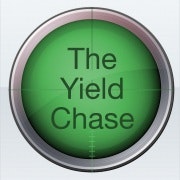Renters Can Be Winners
PORTFOLIO POINT: Renting a property can often deliver better financial outcomes especially at the top of the market.
Is it better to buy than rent? The debate has been reignited in recent times. Falling prices and firm rental yields have triggered calculations that suggest in hundreds of suburbs it is more economic to buy than to rent.
Such reports get great headlines and appeal particularly to first home buyers who are desperate to get into the market.
The truth is a little more complex. There are some postcodes in Australia where on a raw reading of the data it may be true that it is better to buy than rent, though of course a myriad of associated costs will have to be built into the equation if you are to treat this idea seriously.
Remarkably, it is also true that it is often better to rent … especially as you move towards the top end of the market.
For those who want to work out the cash flow sensitivities, there is a great calculator that appears to take into account most of the variables excluding resale costs at Your Mortgage.
In terms of the numbers, the answer on just a pure cash flow perspective really does depend on what rents and interest rates do over a defined period of time. For the purposes of comparison, below are some assumptions based on the current market situation:
- Rents have been growing at 7% per annum nationally, on average, for the past five years, as suggested by the Australian Bureau of Statistics 2011 and 2006 Census data;
- The average gross rental yield for a free-standing house is approximately 5%;
- The average lending rate, after taking into account discounts, is 6%;
- You borrow the full 100% of the property’s purchase value;
- You save the entire difference between the rental cost and what would be the mortgage repayment cost and place that into a term deposit account earning a minimum 4.5%.
- You assume household capital growth of 2% or more.
Using these assumptions, right now you would have better cash flows from renting versus buying. However it’s what happens down the track that matters. After five years, given the above assumptions, you are way ahead after buying real estate, and that is just at a 2% capital growth rate. This is lower than what has been the case for the past five years (a period that covers the downturn for the past two years), where capital growth has averaged 3.5%.
Of course, no one knows the future and subsequently the results can move clearly in favour of renting or buying, depending on what you put into the numbers.
For example, let’s consider prestige property. And let’s also consider this from an insider’s perspective. Working in real estate, I know a number of wealthy people who actually rent prestige property.
Yes, they do own investment properties (at the middle to lower-end of the market), but they prefer to rent the rather affluent properties they occupy. Why do they do this? They know the numbers, and they know the numbers don’t work on buying prestige real estate.
They don’t work, because the gross yields for such properties run at no more than 3% … though, as I say in today’s video above, those yields have been growing at a compound 7% a year.
Moreover, the transaction costs (particularly stamp duty) are proportionately higher, and the holding costs are also very high. And finally, there has been no evidence over the past 20 years that prestige real estate outperforms other, more affordable real estate.
According to data we have collated, the top 5% of properties in terms of value appear to have compounded at a growth rate of 7.1% pa, while the cheapest 40% of properties have grown by 9.2% pa. And those calculations are before the higher holding costs on prestige property.
Clearly, from an investment point of view, buying at the lower end of the market is a better bet and, assuming some modest capital growth, these properties work out better than renting and saving the cash difference over the same period. However, renting at the top end of the market (verses buying at the top end) is a better play.
Louis Christopher is managing director of independent property advisory and forecasting research house SQM Research.













